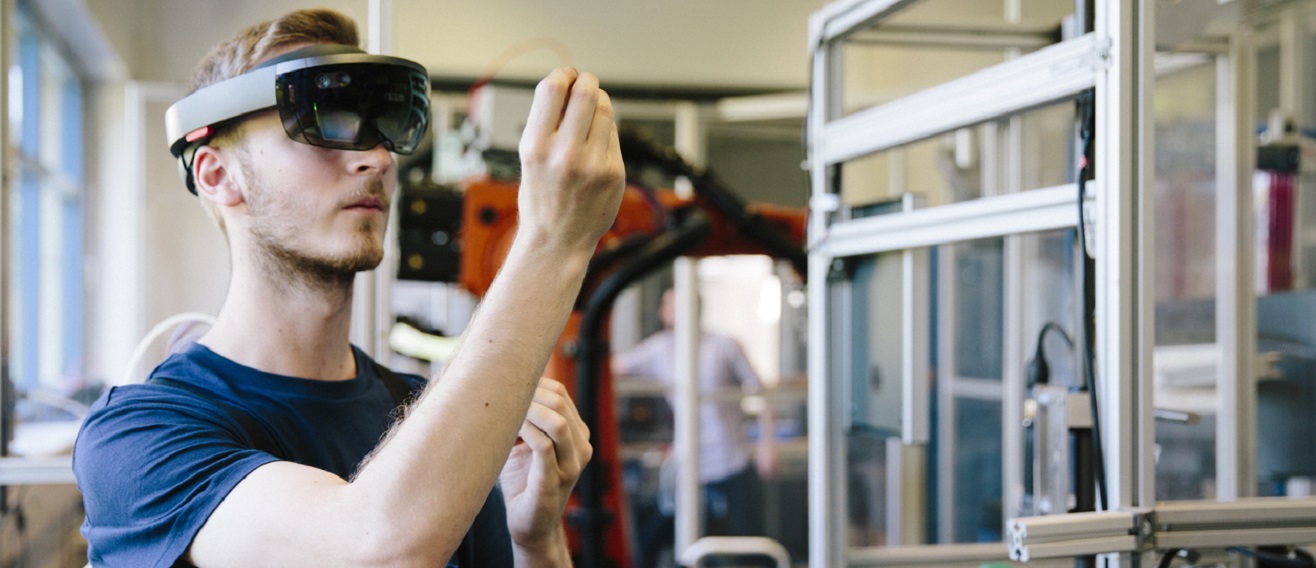
Immersive Media Research Group
Our sphere of interest relates to games, 3D audio and visual media, extended reality (XR), including Virtual Production (VP), and other immersive forms of media. We are excited by the use of immersive media as popularised by Punchdrunk Theatre and Secret Cinema, and as used in the Built Environment, Commerce, Education, Serious Games (Government and Military modelling), Space exploration, and – very importantly - Health. ‘Graduates’ from our research and innovation programmes have gone on to work with the BBC, the Science Museum, and other important national institutions.
Our objectives are:
- To critically examine how space and time gives different affordances and storytelling opportunities to producers, audience/consumers, and other agents using storytelling and immersion.
- To explore how platforms and tools that use AI are changing the way we code and decode media and communications experiences.
- To examine how immersion offers opportunities and challenges to storytelling and the audience experience. In addition, to look at different societal and cultural norms within immersive media both in the UK and more widely.
- To continue to bid for funding from a variety of sources: UKRI, The Welcome Trust, the Science Museum, the V&A, Horizon Europe.
- To continue to explore interdisciplinarity through engagement with both current and emerging tools used in the production, reception, and research of immersive media.
- To progress the collaborative model offered by our dedicated XR studio, the Immersive Media Innovation Hub. The Hub enables situated knowledge exchange (KE) between research, taught programmes at PG, HE, Apprentice, and potentially FE levels, and enterprise. The KE model of the Hub emerged from our highly successful ERDF-funded Hi3 Network.
- To extend pedagogical experimentation in the teaching of immersive media production and reception and to work with others to develop new kinds of accredited courses for all ages, for example a new Apprenticeship in XR, in collaboration with industry partners such as Zeiss (NCam), Screenskills, and our international CILECT partners.
- Professor Lizzie Jackson
- Professor Hillegonda Rietveld
- Dr Adam Parkinson
- Dr Rory Summerley
- Adam Brown
- Justin Randall
- Ben Mallab
- Stefania Maragoni
- Meloni Poole
- Faria Hossain (Phd Candidate)
- Luc Sung
- Andrew Lemon
- Lance Phillips
- Rohit Gill
Current projects
- A jointly supervised Doctorate (Faria Hossain) with the Division of Computing building new algorithms and standard to improve the quality and usability for producers and viewers of 360 Video.
- Joint working with the School of Health to explore the use of addictive behaviours, enabled by the Hi3 Network (£6m ERDF funding) and subsequently taken forward via a recent UKRI award.
- Collaborations over ten years between Professor Hillegonda Rietveld and Professor Stephen Dance (School of the Built Environment) on acoustics and the spatial effects of sound, including co-supervision of a Doctorate with Justin Randell.
- Strong joint interest (Associate Professor Zulfika Adamu, School of the Built Environment) in the analysis of games and gaming where it can bring value to the development of architecturally designed spaces.
- Adam Brown’s research with 3D scanning/capture and modelling in collaboration with SME FormCapture, software developer Elixxier (DE), and fashion designers.
- Harikrishnan and Mingzhang Sun, marketing agency Geobrand (as part of the Hi3 project within LSBU Innovation) and artist Cheryl Newman, and preparation of a UKRI Curiosity funding bid in collaboration with Athens School of Fine Arts and Deakin Motion Lab, Melbourne.
- Engagement with the XRStories national programme (Lance Phillips) with their ongoing Residency Programme (University of York).
Recent projects
The Hi3 Network (2019-2023) was given a £6.1M ERDF grant to explore emerging technologies in the moving image across the Southeast Local Enterprise Partnership Area (SELEP). SMEs who have benefitted so far include over 100 enterprises from Essex, Kent, and East Sussex.
This infrastructure project built three sets of studios in Maidstone at Maidstone Studios, Screen South at Creative Folkestone, and Canterbury Christ Church University. Each ‘Hub’ provides advance technologies within two studios, edit suites, and a co-working space. The three Hubs explored and tested linking using broadcast-standard internet and cloud computing to work as ‘one studio’. SMEs worked with applied researchers from LSBU and Canterbury Christ Church to produce prototypes. See more on LSBU’s contribution.
Internal partnerships
We collaborate with LSBU’s School of Engineering, The Built Environment & Architecture (BEA), the School of Health and the School of Law & Social Science (LSS).
Selected external partnerships
- The School of Digital Art (SODA) at Manchester Metropolitan University
- The University of Staffordshire
- Mo-Sys Engineering (Virtual Production and XR)
- Screen South
- B3Media (Black and Asian Film Makers)